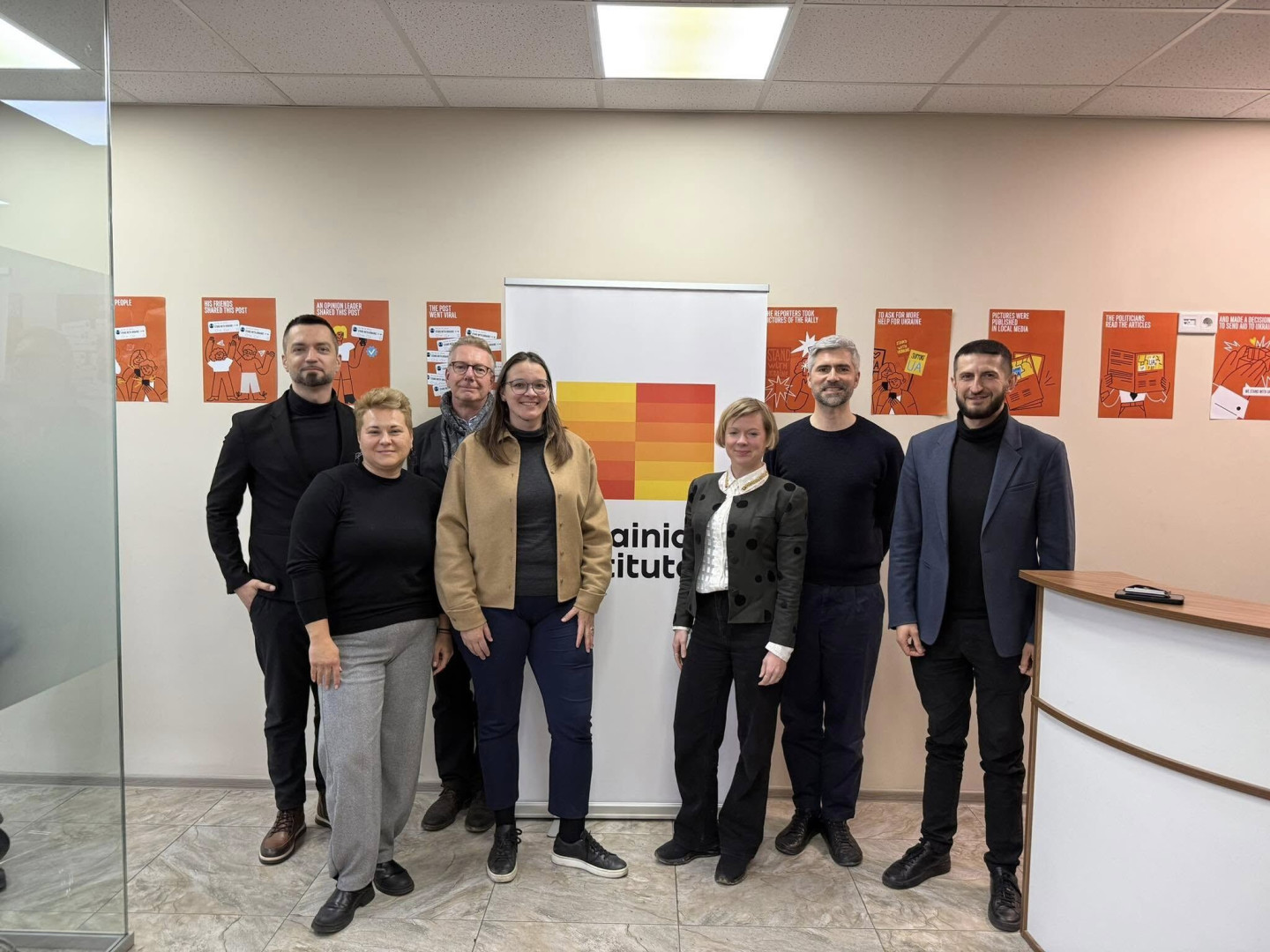
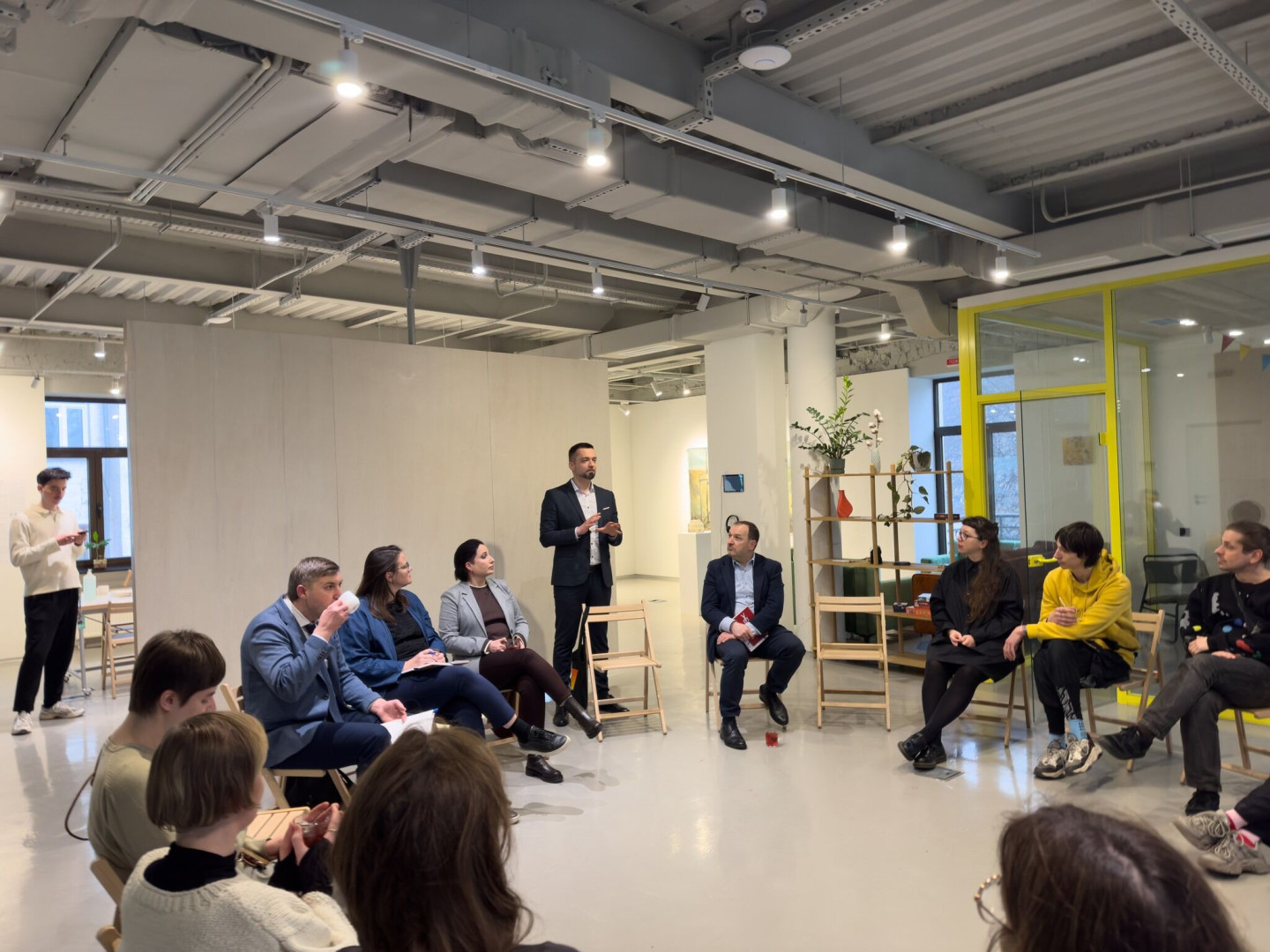
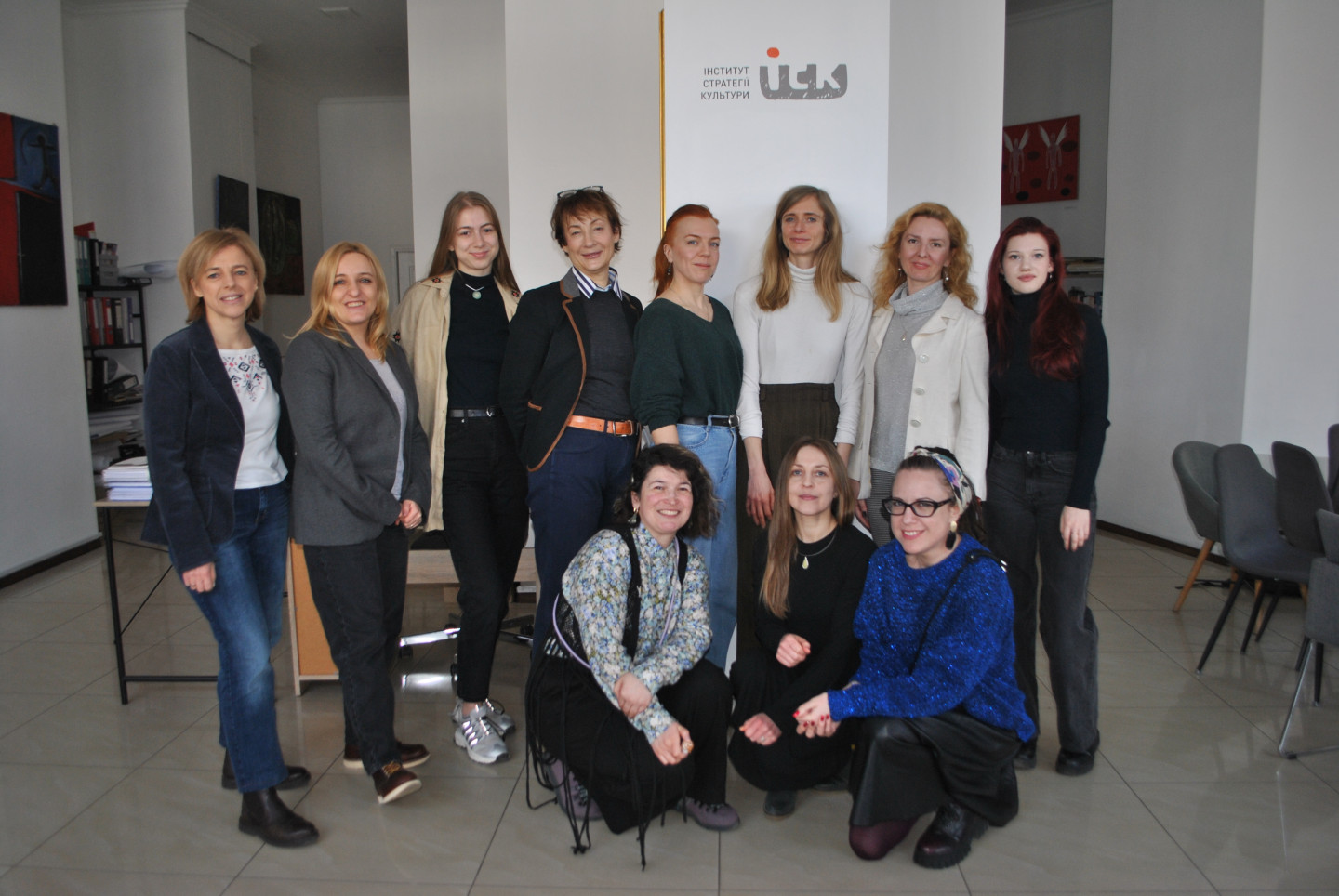
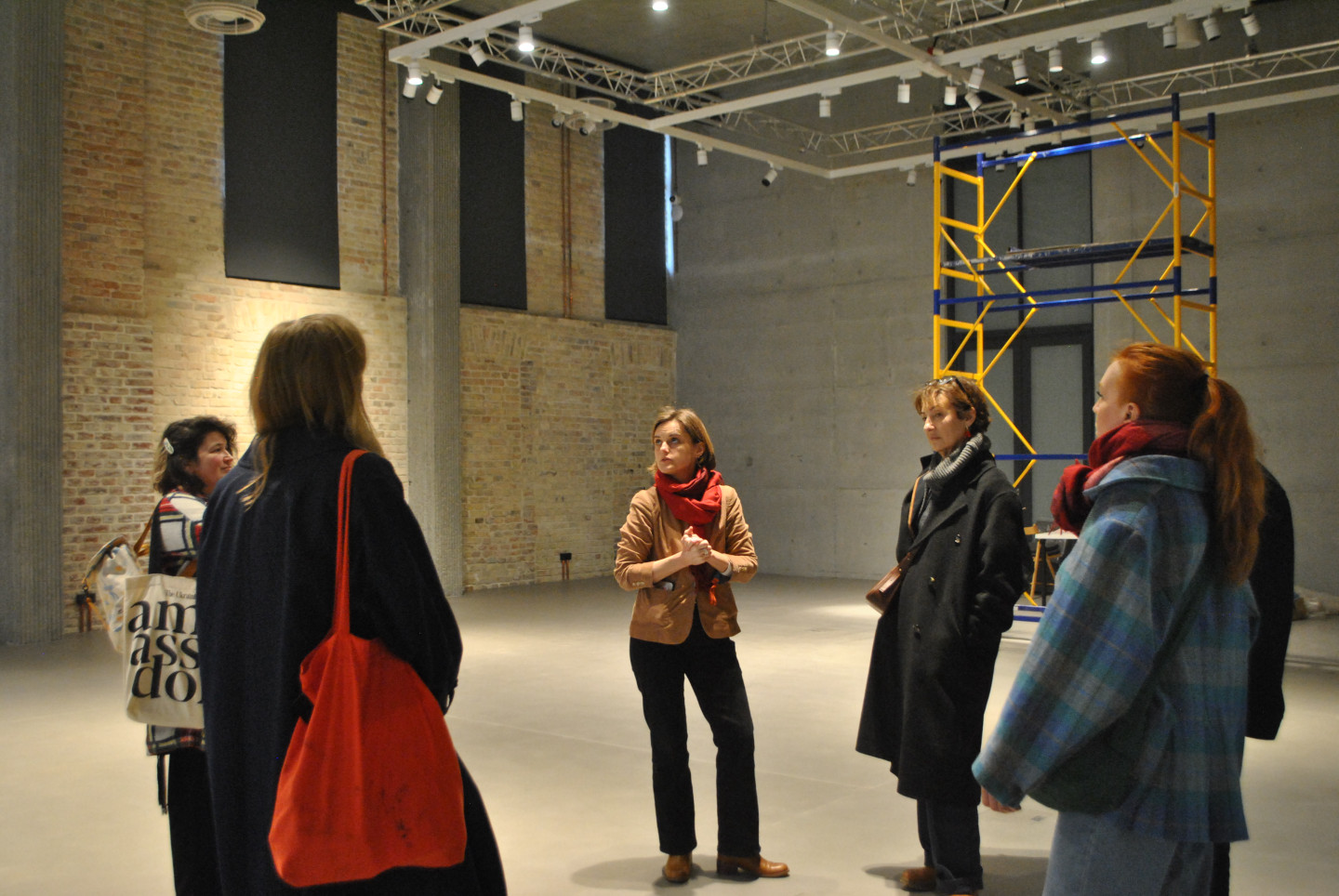
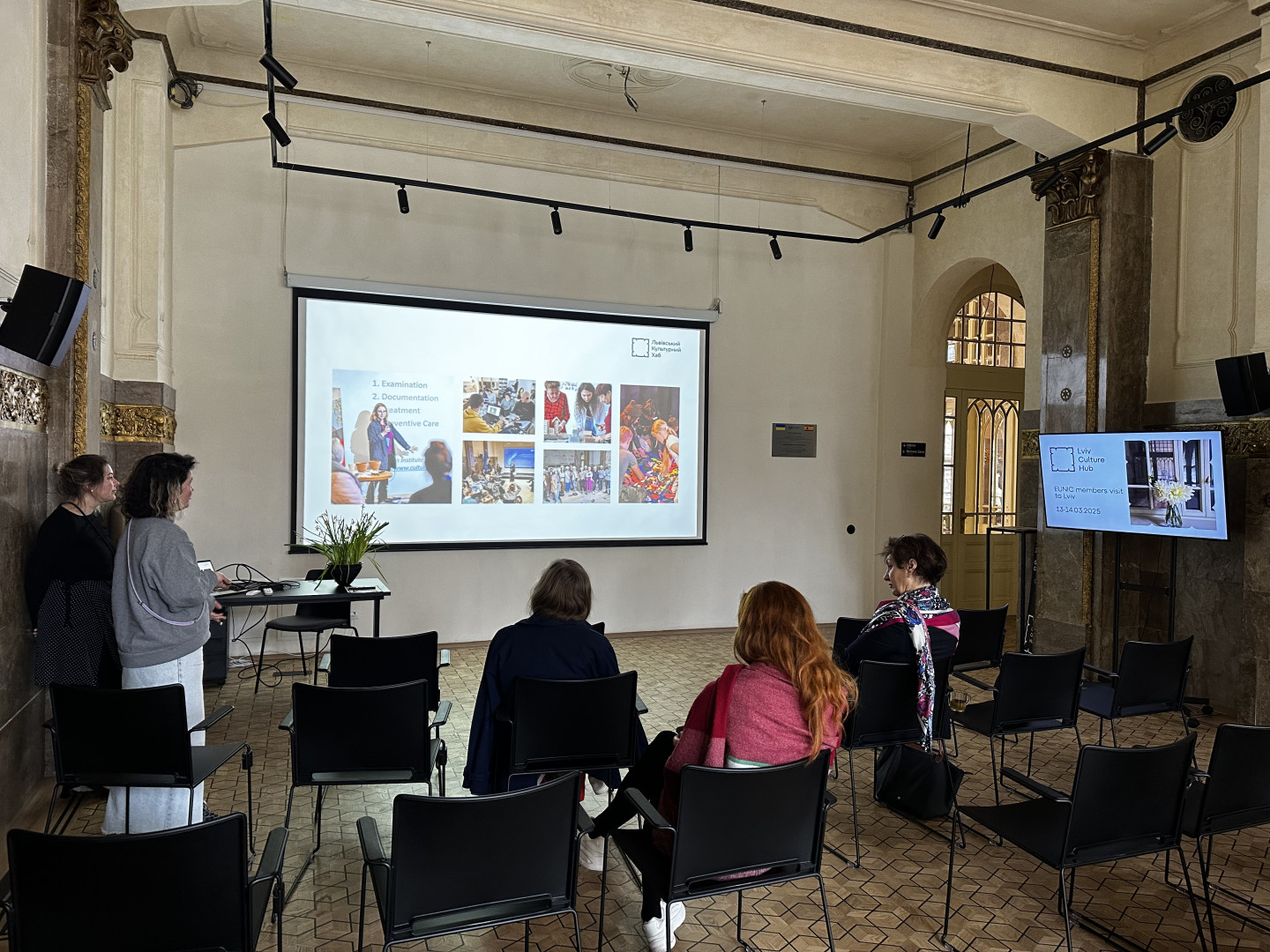
EUNIC Mobility Scheme Visits to Ukraine
In March 2025, participants from the EUNIC network embarked on two Mobility Scheme visits to Ukraine – one to Lviv and another to Kyiv.





The visits brought together participants from six EUNIC member organisations, including the Ministry of Foreign Affairs Republic of Poland, Czech Centres, Danish Cultural Institute, Goethe-Institut, Swedish Institute and the Estonian Ministry of Culture.
These visits were part of a broader effort to foster two-way mobility between Ukraine and the wider European cultural network, a key priority of the Ukrainian Institute. The visits were an important opportunity for wider EUNIC members not only to get acquainted with Ukraine’s cultural ecosystem but also to gain a deeper understanding of the challenges the sector faces during wartime.
Kyiv
The programme provided an insightful and informative overview of the values, principles, strategic objectives, and priorities of the Ukrainian Institute. During the visit, participants explored project management models and the programme portfolio of the Ukrainian Institute as a public institution in the context of the challenges presented by Russia’s full-scale invasion of Ukraine.
For the Ukrainian Institute and the local culture sector, such visits are a true show of solidarity, reminding us that we are not alone and among friends.
Volodymyr Sheiko, Director General of the Ukrainian Institute
To help delegates gain a deeper understanding of the cultural sector's activities during wartime, the programme included meetings with Ukrainian artists and curators at the Ukrainian-Danish Youth House to discuss the representation of war in art.
A visit to the Goethe-Institut was also held to explore international cultural initiatives and programme activities within the House of Europe programme. Deputy Minister of Foreign Affairs of Ukraine, Maryna Betza, met with the group to discuss the role of cultural diplomacy in contemporary conditions and participants had the opportunity to visit cities in the Kyiv region affected by the war and engage with local communities.
This trip to Ukraine is a journey into a reality of Europe that we all still understand too little about. I am particularly impressed by the will of the Ukrainian society as a whole to overcome difficult challenges, show solidarity, and retain its culture and sovereignty.
Jakob Racek, Head of Information Department at Goethe-Institut HQ
Lviv
The second visit took participants to Lviv, and was hosted by the UNESCO Lviv Culture Hub, funded by AECID. The programme showcased the city’s rich cultural scene and its approach to preserving cultural heritage during wartime. A walking tour introduced participants to Lviv’s historic architecture and the ongoing efforts to protect it from potential threats.
Delegates visited both public and private cultural institutions, including the Cultural Strategy Institute and the Green Sofa Gallery, where they learned about innovative projects and long-term strategies for cultural development. They also explored the role of youth activism during a visit to the MoloDvizh Centre, part of Lviv’s European Youth Capital 2025 initiative.
At the Jam Factory Art Centre, participants were introduced to contemporary art initiatives that serve as platforms for public dialogue and reflection on current events. The visit to the Lviv Habilitation Centre, which supports veterans and their families through art therapy, highlighted the transformative power of culture in healing and resilience.
In the context of full-scale war, Ukrainian culture is not just area of creativity – it has become a tool of resistance, identity preservation, and international dialogue. Despite the destruction of cultural infrastructure, the migration of artists, and financial difficulties, the sector continues to function, adapt, and explore new opportunities for cooperation.
I was hugely grateful to our hosts for this opportunity to meet with Ukrainian artists and creators. I was moved by the vitality and urgency in Ukrainian cultural life under the present circumstances.
Kurt Bratteby, Director of International Relations, the Swedish Institute
Learn more about EUNIC’s continued collaboration with the Ukrainian Institute and the Third Edition of our Ukraine Fund here.
